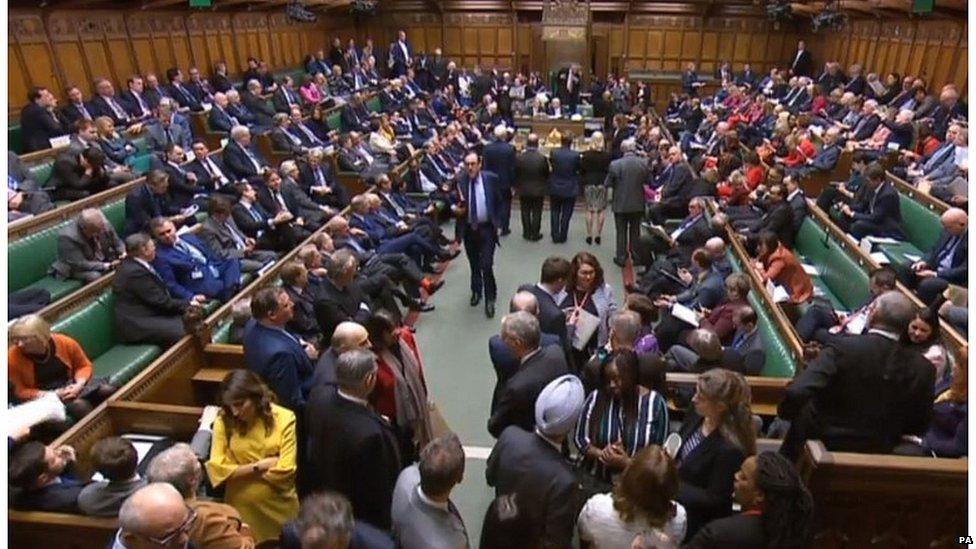Tax haven retreat underlines government's weakness in Commons
- Published

The government's decision to pull a debate and votes on the Financial Services Bill underlines the weakness of its position in the Commons.
Faced with a threatening backbench uprising led by a wily Conservative former chief whip and a dangerous street-fighting Labour grandee, the government has opted for retreat rather than defeat.
Working across the party divide, Andrew Mitchell and Margaret Hodge have been successfully pushing for a public register of beneficial ownership of companies based in British overseas territories like Anguilla, Bermuda, Gibraltar, the Virgin Islands and the Cayman Islands.
The amendment they had put down to the bill would have reaffirmed that and called for a draft Order in Council requiring the government of any British overseas territory that has not introduced such a register to do so no later than 31 December 2020.
Crucially, the bill - which brings a wedge of EU financial regulation into UK law - would have added the same requirement for Crown dependencies - the Channel Islands and the Isle of Man.
The object was to clamp down on tax avoidance and ensure that the proceeds of corruption or organised crime were not being laundered into, for example, the British property market.
The Crown dependencies and overseas territories are all resistant to such an instruction and the government has been under pressure from Labour to show that it is implementing the result of the last Hodge-Mitchell amendment, in May last year.
As chair of the powerful Public Accounts Committee between 2010 and 2015, Mrs Hodge pursued a high-profile campaign against tax avoidance; while as a former international development secretary, Mr Mitchell is very concerned about the impact of corruption and tax evasion on the developing world.
Faced with an amendment signed by 25 Conservative MPs, more than enough to ensure a majority, the whips presumably concluded that they faced a corrosive Commons defeat.
The trouble is, this bill can't wait long.
It provides a post-Brexit legal framework for a critical sector of the UK economy, so it will need to be pushed through soon.
Maybe ministers will seek some compromise with the Hodge-Mitchell alliance. But it looks as if the rebels have the upper hand.
- Published30 July 2019